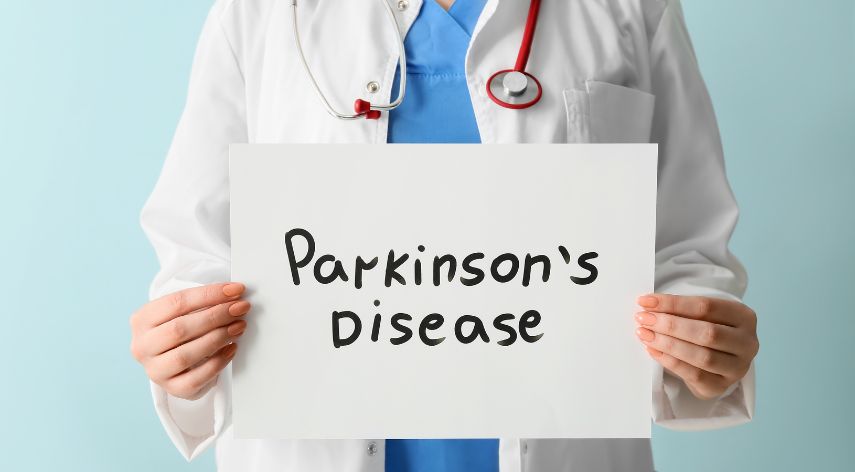Guide to Best Oral Hygiene Instruction: Key Steps to Prevent Oral Disease

Time to brush your teeth!
That might be the step that you pay the least amount of attention to when it comes to oral hygiene. The steps are easy to remember: brush, rinse, floss, rinse again.
But what about that first step? What about making sure that people have a solid understanding of proper oral hygiene? How can you ensure that the folks in your community are brushing and rinsing well–and know to use the proper mouthwash?
Let’s take a look at the importance of proper oral hygiene instruction–and what you need to cover in yours.
Table of Contents
ToggleImportance of Oral Health
Before discussing specific instructions, it is important to understand why oral health is so crucial. Poor oral hygiene not only affects your mouth but also has a significant impact on your overall health.
To fully grasp the importance of proper dental care, it’s crucial to understand the common diseases that result from neglecting oral health. Tooth decay, also known as cavities, results from harmful bacteria in your mouth that feed on leftover food particles. This creates acids that eat away at your tooth enamel.
Gum disease, on the other hand, occurs when plaque accumulation leads to inflammation and infection of the gums. If left untreated, both tooth decay and gum disease can lead to pain, tooth loss, and serious health complications.
Research has shown that gum disease and other oral infections have been linked to serious health conditions. These are such as:
- heart disease
- stroke
- diabetes
Therefore, it is essential to take care of your oral health to maintain a healthy body.
Recommended Oral Hygiene Instructions
Maintaining good oral hygiene is essential for preventing oral diseases such as tooth decay and gum disease. Here are some recommended guides and practices.
Brushing Twice a Day
The most fundamental step for good oral hygiene is brushing twice a day with fluoride toothpaste. This helps to remove plaque buildup and prevent the formation of tartar, which can lead to tooth decay and gum disease.
It is recommended to use a soft-bristled toothbrush and brush in gentle circular motions for at least two minutes. Make sure to also clean your tongue to remove any bacteria or food particles that may cause bad breath.
Flossing Daily
Brushing alone cannot reach the spaces between your teeth, which is why flossing is crucial in maintaining good oral health. Flossing helps to remove plaque and food particles that are trapped between your teeth, preventing tooth decay and gum disease. It is recommended to floss at least once a day, preferably before brushing your teeth.
Using Mouthwash
Mouthwash is an effective way to kill bacteria and freshen your breath. It is recommended to use mouthwash after brushing and flossing to further clean your mouth and prevent plaque buildup.
Choosing the Right Toothbrush
Using the right toothbrush is essential for proper oral hygiene instruction. As mentioned earlier, it is best to use a soft-bristled toothbrush as it can effectively clean your teeth without causing damage to your gums. Electric toothbrushes are also a great option, as they can remove more plaque and reduce the risk of gum disease.
Maintaining a Nutritious Diet
A healthy diet is important not only for your overall health but also for your oral health. Foods high in sugar and starch can cause plaque buildup, leading to tooth decay. Consuming foods rich in calcium and vitamin D can help strengthen your teeth, while foods high in vitamin C can help prevent gum disease.
Limiting Sugary and Acidic Drinks
Sugary and acidic drinks such as soda, energy drinks, and fruit juices can erode the enamel on your teeth, making them more susceptible to decay. It is best to limit your consumption of these drinks and opt for water instead.
Regular Dental Checkups
Despite following all the recommended oral hygiene instructions, it is still important to visit your dentist regularly for checkups and cleanings. Your dentist can identify any potential issues and provide proper treatment before they become more severe.
Additional Tips for Proper Oral Hygiene
Maintaining proper oral hygiene is crucial for preventing oral diseases such as cavities, gum disease, and bad breath. Here are some additional tips.
First, replace your toothbrush every three months or when the bristles become frayed. Next, use fluoride toothpaste to help prevent tooth decay. Then, avoid smoking and using tobacco products as they can cause various oral health problems.
Additionally, if you wear braces or other orthodontic appliances, make sure to clean them properly to prevent plaque buildup. Use a tongue scraper or brush your tongue gently with your toothbrush to remove bacteria and prevent bad breath. Lastly, if you experience any pain or discomfort in your mouth, consult your dentist immediately to avoid further complications.
Advantages of Good Oral Health
Maintaining excellent oral hygiene not only prevents dental diseases but also comes with a myriad of benefits. A healthy mouth reduces the risk of bad breath, keeps your teeth for a lifetime, and saves you money by cutting down on dental procedures.
Additionally, it boosts your self-esteem and confidence, as you don’t have to worry about having bad breath or discolored teeth. Moreover, studies show a correlation between good oral health and overall well-being, underlining that oral health is a significant contributor to a healthy lifestyle.
The Role of Saliva in Oral Health
Saliva plays a significant role in maintaining oral health. It washes away food particles, neutralizes the acids produced by bacteria, and provides disease-fighting substances throughout your mouth.
Therefore, staying hydrated is essential to keep your saliva levels optimal. Similarly, chewing sugarless gum or eating fibrous fruits and vegetables can stimulate saliva production.
Use These Oral Hygiene Instructions Today
Oral health is an integral part of your overall health and should never be overlooked. By following these oral hygiene instructions, including brushing, flossing, using mouthwash, maintaining a healthy diet, and regular dental checkups, you can prevent oral diseases and ensure a healthy mouth. Remember, prevention is always better than cure, and early detection and treatment of oral health issues can save your teeth and your life.
Make sure to prioritize your oral health, and you’ll reap the benefits of a healthy smile for years to come. No matter what stage you are at in your life, it is never too late to start taking care of your oral health. So follow these key steps and maintain good oral hygiene for a happy and healthy mouth.
If you want to read more articles, visit our blog.
Biplab Chakraborty is a dynamic Digital Marketing specialist with a passion for driving online success. With a keen understanding of market trends and a strategic approach, he excels in creating impactful digital campaigns. Biplab is dedicated to maximizing brand visibility and engagement through innovative digital strategies.
Recommended For You
Spread the loveAre you striving to lose weight without sacrificing your health? With weight loss advice seemingly coming from every
Spread the loveSeniors with Parkinson’s disease (PD) can lead satisfying lives, even though there is currently no cure for the
Spread the loveHave you ever stumbled upon an IP address that seems to be shrouded in mystery? One such enigmatic





